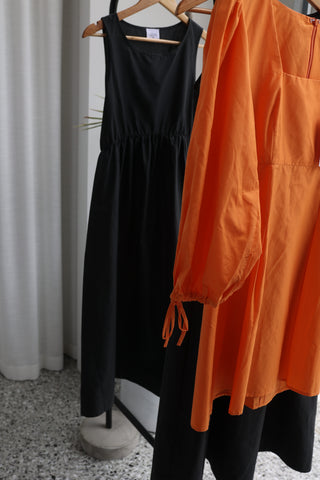
Consumers are increasingly more aware of how their garments are created. As a result, fashion brands and manufacturers are adopting more environmentally friendly, ethical, and socially conscious production methods. If you've recently purchased one of our garments which has the OEKO-TEX® certification label, you're undoubtedly wondering what it signifies and how significant it is.
In a broad sense, OEKO-TEX® is a collection of third-party certifications that certify that a product has been thoroughly tested for chemicals that may be detrimental to humans and our broader ecosystems. OEKO-TEX® does not make its own products; instead, it certifies those made by others. Their mission is to “create trust in textiles and leather and in their production: through increased product safety, improving sustainable production and a sustainable, transparent value-creation chain.”
To attain the Standard 100 certification, OEKO-TEX® ensures that every component of the garment including the threads, buttons and other accessories are free of any harmful substances including formaldehyde gas, heavy metals, pesticides, phthalates which are chemicals to make plastic more durable, and other chemicals. In many cases, OEKO-TEX® testing criteria and limit values are much stricter than national or international standards.
Your skin is permeable, so if you’re wearing clothes that have been processed with harmful chemicals, those chemicals can be absorbed into your body. You should always wash new clothes before you wear them anyway, but the OEKO-TEX® certification is your guarantee that your new clothes have been processed without harmful chemicals.
Does OEKO-TEX® certification mean my garment was produced with organic fabrics?
The simplest way to explain this is that organic certification is all about how the raw materials for your fabric are grown. OEKO-TEX® certification is about how the fabric is processed, including things like dyes and finishes.
Fabrics like cotton, wool, bamboo, hemp, flax, and other natural fibres must be grown and processed under strict criteria that prohibit the use of synthetic fertilisers and pesticides in order to be certified organic. To be labelled organic, the fabric must meet GOTS (Global Organic Textile Standard) or processing criteria (Australian Certified Organic). However, fabric that is organic has not necessarily been tested for harmful substances in the same way as the OEKO-TEX® Standard 100 certification.
Organic certification and OEKO-TEX® Standard 100 certifications are different, but useful ways for consumers to understand more about how the products they buy are produced.
At JOS it is important to us that we create our garments with intent, honesty and consciousness of our impact. We believe in growth and continual learning, taking each step with intention and commitment. As we progress as a brand, we recognise and honour the process, continually finding new ways to learn, adapt and evolve. We strive to be transparent and honest with our journey, avoiding marketing terms and trends, providing customers with honesty and integrity.
